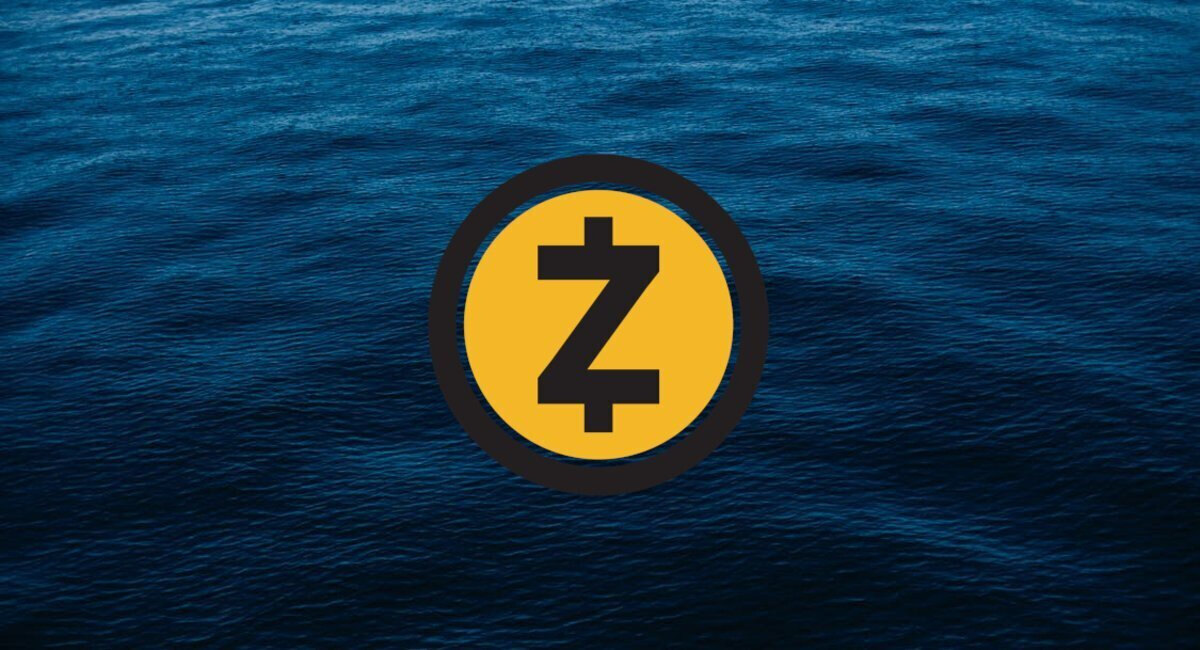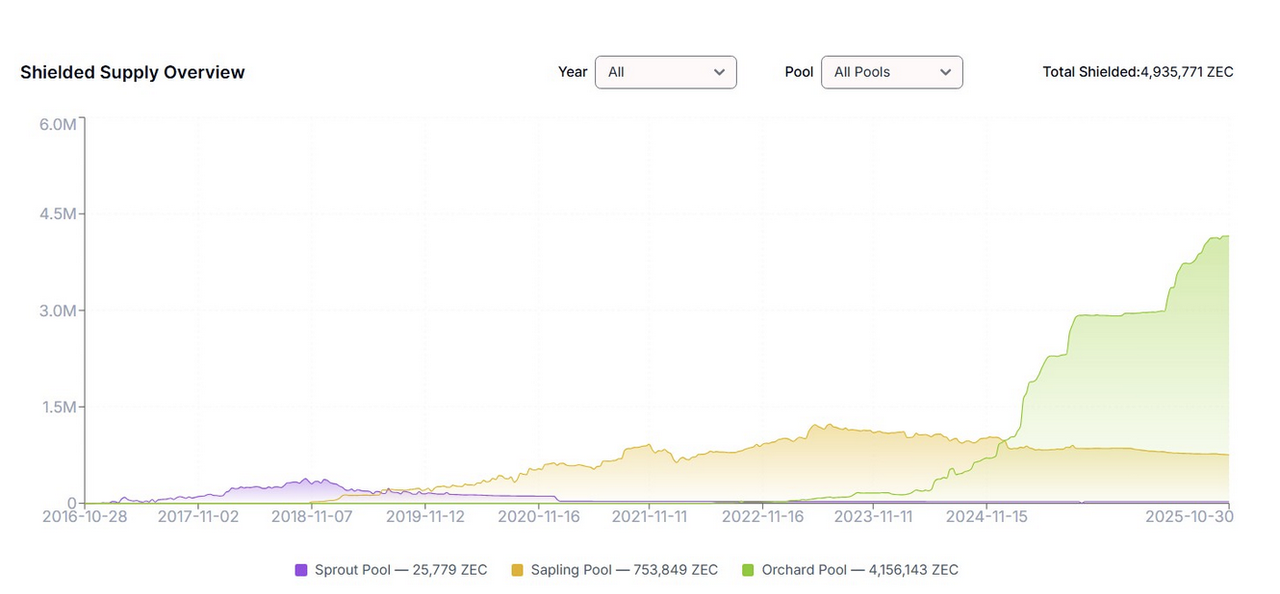Introduction: How Far Are We from the World of Black Mirror?

Imagine a world where people are forced to ride stationary bikes like hamsters to earn points. This is not only their only source of income but also the energy that keeps the entire society running. Every pedal stroke, every drop of sweat, is converted into capital for the system. Most of the points you earn are gradually consumed by advertisements and consumerism on the screen. You think you can resist, but you find that even resistance becomes part of the system's data collection.
This is the digital future depicted in the famous British series "Black Mirror" in the episode "Fifteen Million Merits"—where people's lives are completely consumed by ubiquitous surveillance and point systems. But what if this "sci-fi" world is actually just a wall away from us?
I. The Resurrection of Privacy Coins: Bitcoin of 2009?
In October 2025, a sudden narrative storm swept through the cryptocurrency field. Zcash, a long-dormant privacy coin project, suddenly became the focus of the market. Its token price skyrocketed by 375% in just one month, with a market cap exceeding $9 billion and trading volume hitting an all-time high. On social media, various KOLs and institutional analysts compared it to "Bitcoin of 2009," leading retail investors to flock in, while the overall market cap of privacy coins accounted for 6% of total crypto trading volume, setting a historical record.
Is the revival of privacy coins merely a rotation of market narratives? Or is smart money using real cash to buy insurance against the impending era of financial surveillance?
To understand the deeper meaning behind this, we must return to the starting point of history.
II. Tamed Currency: Seventy Years of Financial Regulation

The Forgotten Golden Age: The Anonymity of Cash
Let’s start with a silver coin.
Before the modern banking system was born, the essential characteristic of currency was anonymity. Whether it was gold coins in ancient Rome, silver dollars in the Middle Ages, or paper money during the Industrial Revolution, all transactions were based on physical exchange, inherently untraceable.
When a merchant buys bread with a silver coin, the transaction is like a secret handshake between two people—simple, private, and without a trace. The silver coin is the perfect "mute": it doesn’t speak, doesn’t record, and doesn’t inform anyone. Even the most powerful king cannot know the "past and present" of this silver coin.
This right to free trade has been the default setting of the currency system for thousands of years—until a war changed everything.
Turning Point: The "Transparency Experiment" After World War II
Every empire's establishment begins with the permanentization of a "temporary measure."
The establishment of the modern financial surveillance empire began at a special historical moment: the post-World War II reconstruction period. Every seemingly reasonable measure quietly wove a global surveillance web:
- 1970 Bank Secrecy Act: The U.S. Congress passed this law requiring banks to report cash transactions over $10,000. This was the first time in history that the government systematically required financial institutions to monitor customer transaction behavior.
- 1989 Establishment of FATF: The establishment of the Financial Action Task Force marked the expansion of anti-money laundering (AML) and know your customer (KYC) from a domestic U.S. policy to a global standard.
- Globalization of the SWIFT System: The Society for Worldwide Interbank Financial Telecommunication established a global financial information network, making cross-border capital flows completely transparent.
Meanwhile, over the past 70 years, credit cards have given every transaction a "memory": banks began requiring identity verification, and governments required financial institutions to report "suspicious" transactions. Fast forward to today, mobile payments and internet technology have pushed surveillance to a suffocating height. Every swipe of your card, every click, is analyzed into a digital profile by algorithms. The central bank digital currencies (CBDCs) being promoted by various countries are designed from the outset with tracking features.
The cost of this change was starkly revealed in the 2022 Canadian "Freedom Convoy" incident. Bank accounts supporting protesters were frozen by the government (even though they had not been convicted), preventing them from buying food, fuel, or even paying for electricity. A bank account transformed from a symbol of wealth into a "digital ankle bracelet" in the age of technology. This is not a reality occurring in a distant authoritarian state, but in a Western democratic country.
When your money is completely digitized and fully traceable, you lose economic freedom. A bank account is no longer property but a privilege that the government can reclaim at any time.
The disappearance of financial privacy did not happen overnight; it is the result of 70 years of gradual erosion.
III. The Transparent Trap: Bitcoin's "New Clothes" and the Big Brother of the AI Era

Bitcoin's "Transparent New Clothes"
Ironically, when Bitcoin was born in 2009, many believed its decentralized nature would restore anonymity in financial transactions. The reality, however, was unexpected—Bitcoin's transparent ledger provided unprecedented convenience for surveillance.
In October 2025, the U.S. Department of Justice seized 127,000 Bitcoins from Cambodia, illuminating the truth: the public record of the blockchain allows the government to track the flow of every Bitcoin as easily as flipping a page. As long as a blockchain address is linked to a real identity (for example, through exchange KYC), all transaction histories can be completely restored.
People suddenly realized that even the most "decentralized" Bitcoin could be completely transparent in front of the government. Every transaction is recorded on the blockchain, and every address can potentially be traced back to a real identity. This "transparency" may be an advantage in criminal investigations, but for ordinary users, it is a nightmare for privacy.
It's like thinking you are wearing a new outfit called "decentralization," only to find out it is a transparent garment.
Big Brother of the AI Era

If traditional bank surveillance is a form of manual review, then the combination of blockchain analysis and artificial intelligence takes surveillance capabilities to the extreme, heralding the arrival of a more "thought-provoking" era.
Starting in 2025, a well-known blockchain analysis tool has widely adopted AI technology. These "digital detectives" can not only automatically identify wallet behavior patterns and associate IP addresses but can even predict the next steps of funds. It’s like having a private detective installed at every wallet address, working 24/7.
Even more frightening is that these AI tools can not only see what you have done but can also guess what you are about to do. They analyze transaction histories, generate "risk profiles," and label you before you take action.
The CEO of Chainalysis boldly predicted, within the next five years, AI will be able to monitor all cryptocurrency transactions. These AI agents can not only "solve cases" but also track cryptocurrency tax evaders. Although he stated that those who cashed out their crypto assets five years ago or longer might "escape," the IRS and other tax agencies have already begun to widely use AI to track potential tax evasion.
*Regarding cryptocurrency taxation:_ In the U.S., U.K., and Germany, reporting cryptocurrency taxes has become a mandatory requirement._
This means that the transparent ledger of cryptocurrencies, under the support of AI, will become the most powerful surveillance tool in human history. In a world where blockchain is assumed to be transparent, this automated, large-scale surveillance will shrink the space for anonymity at a visible speed. This fear is the true catalyst for the surge in demand for privacy coins in 2025.
The Comprehensive Expansion of Financial Surveillance
The "electronic ankle bracelet" of the financial system is just the beginning. The logic of surveillance is expanding from the financial sector to every corner of life:
- The crackdown on privacy coins (starting in 2023): Over 70 delisting events across global exchanges.
- Strengthening of U.S. SAR (starting in 2025): The Treasury Department strengthens reporting requirements for suspicious activities involving crypto assets.
- EU Privacy Coin Ban (effective July 1, 2027): Privacy coins are classified as "anonymity-enhanced crypto assets" and are completely banned.
- Meta Data Recovery (starting April 14, 2025): Resuming the use of publicly available data from European users to train AI models.
- EU "Chat Control" CSAR Proposal: Requires messaging clients to scan all communication content (including encrypted messages).
As digital privacy enters a countdown, and anonymity is gradually stripped away, the market has developed an almost instinctive panic demand for any asset that can provide "untraceability."
IV. The Counterattack of Privacy Coins: The "Lifeboat" in the Sea of Crypto

As AI technology makes every crypto transaction transparent, the importance of privacy becomes increasingly prominent. Privacy coins are not only weapons against the "digital Big Brother" but also the last line of defense for ordinary people to retain financial freedom and privacy rights.
Thus, privacy-focused cryptocurrencies offer a way to return to normalcy.
They enable direct, permissionless transactions between individuals, without identity verification or centralized regulation. Essentially, this is a digital return that recreates the services once provided by coins and cash.
The Surge of Zcash: The Technological Moat
Why did Zcash explode in popularity? Zcash shares some key fundamental elements with Bitcoin—fixed supply and proof-of-work consensus mechanism.
But it adds a crucial layer of privacy protection: shielded addresses—using zero-knowledge proofs (zk-SNARKs) to hide the sender, receiver, and transaction amount. Transactions between shielded addresses enter a fund pool for confidential transaction tokens, and as the pool grows, the network's anonymity set expands, enhancing privacy protection for all users.
The protected fund pool has now reached its largest size ever, approaching 4.9 million ZEC.

_The supply of shielded Zcash has approached 30%. Source: _ Zechub
The founder of the DeFi platform TYMIO publicly stated, "As global regulations tighten and exchanges are required to report wallet ownership to tax authorities starting in 2026, privacy has become one of the most powerful issues in the cryptocurrency space." He also pointed out, "Some large participants have begun converting part of their Bitcoin holdings into Zcash."
The revival of privacy coins like Zcash is, in fact, a panic hedge against political risk.
KOL's Boost: The Next Bitcoin?

_Source: _@gazzajenks_
However, technical advantages alone cannot explain the explosive growth of Zcash. Behind this revival of privacy coins, a group of the most influential voices in the crypto world has been collectively speaking out. Influential figures like Arthur Hayes and Naval Ravikant have been advocating for Zcash's privacy-first advantages for months and making optimistic price predictions. This collective support has not only driven ZEC's excess returns but also strengthened the narrative around privacy coins.
As Ran Neuner, host of the YouTube channel Crypto Banter, stated, this South African broadcaster and entrepreneur described Zcash as "the most exciting thing in the cryptocurrency space right now," comparing it to the early adoption of Bitcoin from 2009 to 2017.
"What makes Bitcoin special is twofold. The smartest cypherpunks on the planet, these extreme libertarians, have come together to self-organize around a common goal: to create a private currency that allows for peer-to-peer transfers anywhere in the world without government intervention."
"…and this time, the cypherpunks are coming together to fight for privacy, which is the missing piece in Bitcoin."
V. Conclusion: The Last Line of Defense for Freedom
Anthropologists have long told us that privacy is a fundamental human need, as important as food and sleep. We need a private space that is not observed or judged.
This is not because we have secrets to hide, but because continuous surveillance fundamentally changes our behavior.
When you know that every transaction is being recorded, analyzed, and judged, you begin to self-censor—don’t donate to controversial charities, don’t buy "sensitive" books, don’t support "inappropriate" political candidates.
This is what economists refer to as the "chilling effect"—surveillance does not need to actually punish you; just knowing you are being watched is enough to change behavior. It’s like an invisible cage; you can’t see the bars, but you can never escape.
As digital surveillance becomes ubiquitous and financial privacy is gradually stripped away, any asset that can provide "untraceability" will be repriced.
After all, once the financial system truly becomes an all-knowing surveillance machine, no one’s life will ever return to what it was.
“The right to be let alone — the most comprehensive of rights, and the right most valued by civilized men.”
免责声明:本文章仅代表作者个人观点,不代表本平台的立场和观点。本文章仅供信息分享,不构成对任何人的任何投资建议。用户与作者之间的任何争议,与本平台无关。如网页中刊载的文章或图片涉及侵权,请提供相关的权利证明和身份证明发送邮件到support@aicoin.com,本平台相关工作人员将会进行核查。




